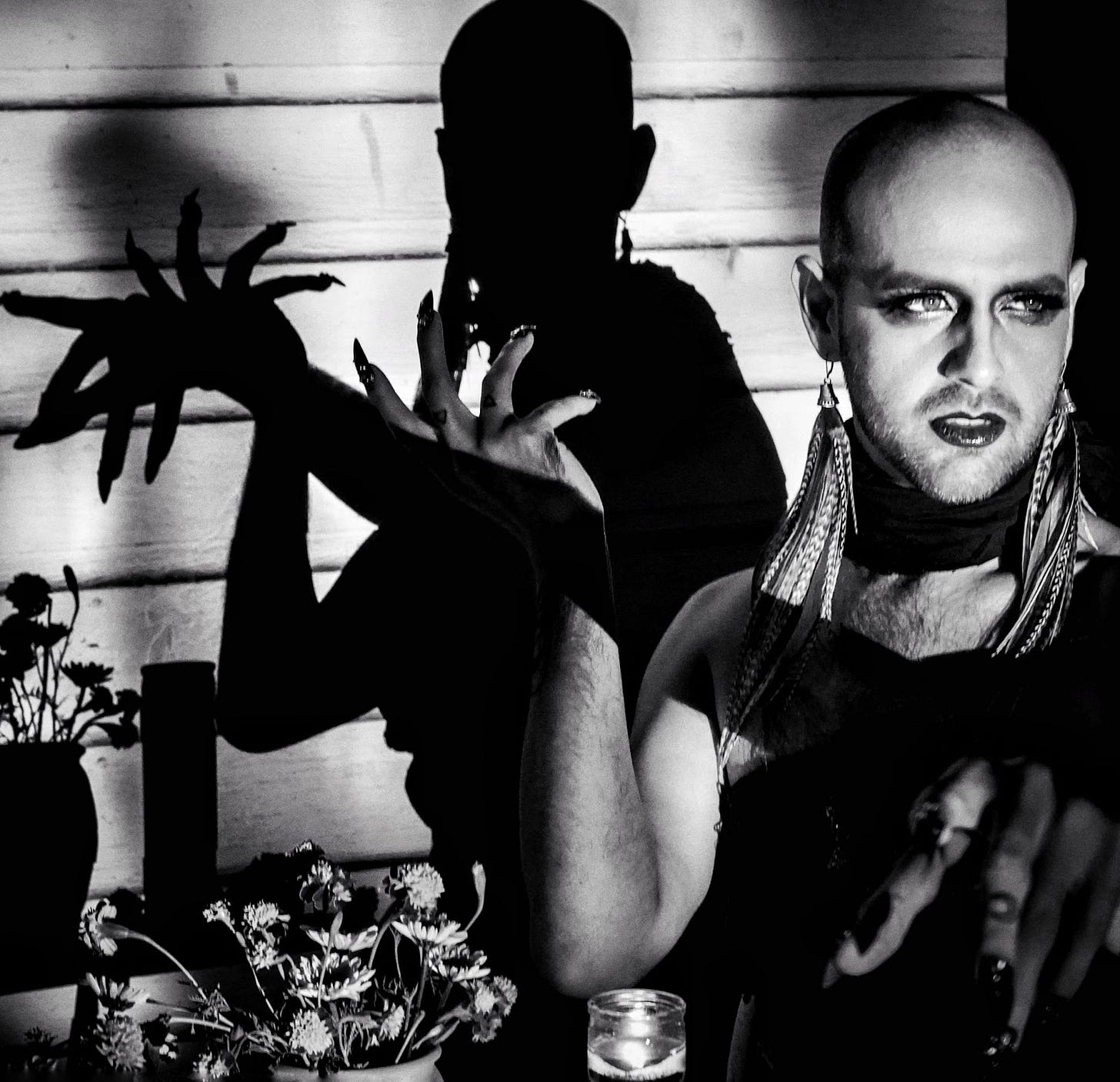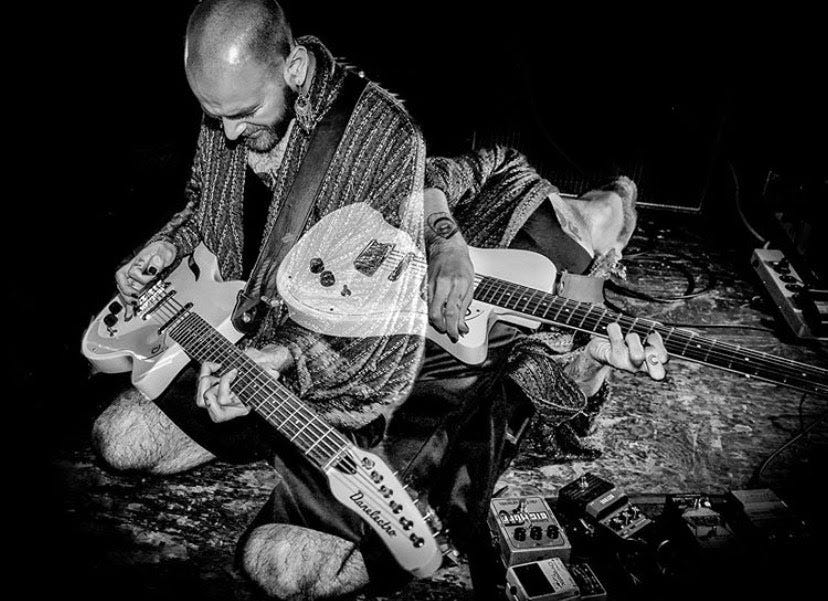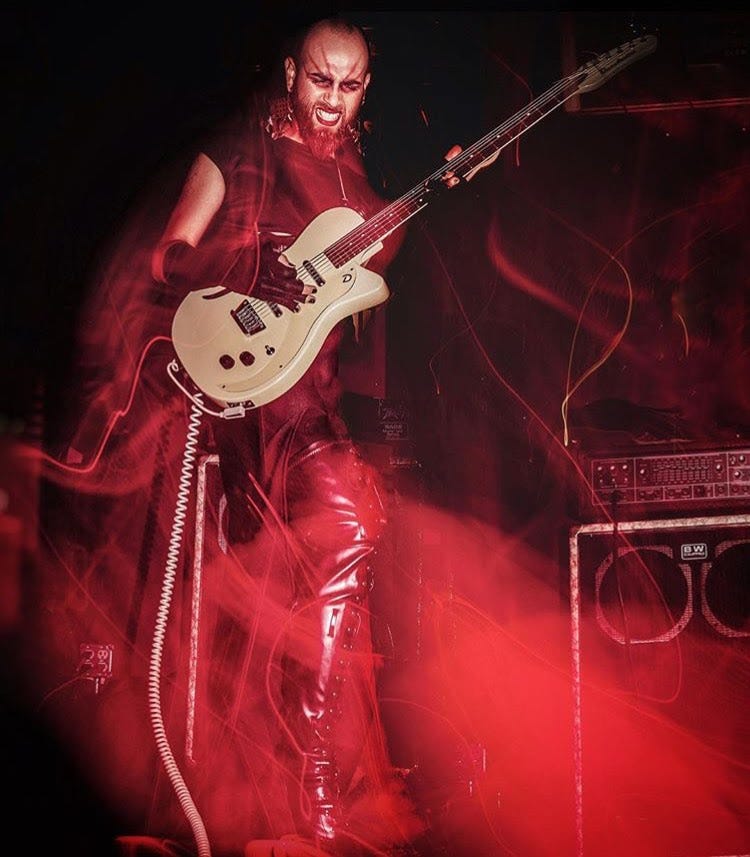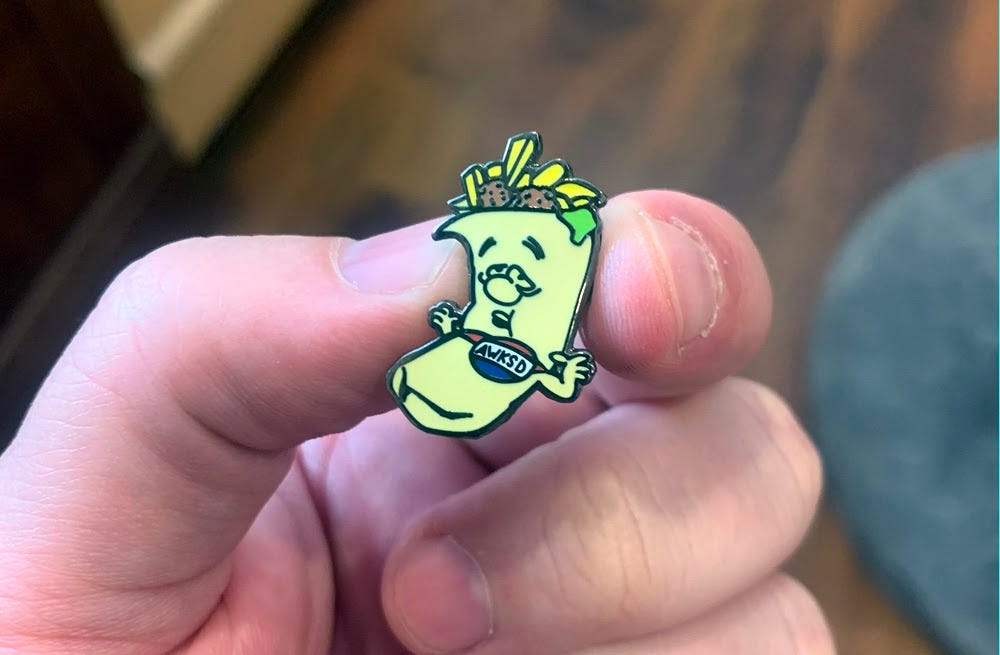The unclassifiable genius of D.WREX
Genderqueer, nonbinary musician erases boundaries on their epic, stunning record

To talk about D.WREX’s music is, ultimately, a conversation about texture.
Stepping back, it seems a little strange to apply a tactile sensation to an auditory experience, but we do it all the time: smooth, rough, abrasive, etc. We’re constantly borrowing textural words to help articulate our reactions, but we’re hardly thinking of the implications. Texture is intimate. It contains multitudes. In theory, it provides the acuity to describe the indescribable. But more often than not—and I don’t know if this is due to our innate desire to categorize or just the type of music we deem popular—textural vocabulary is often relegated to generalizations and binaries. (e.g. “hard” and “soft” rock).
But D.WREX’s music is a celebration of texture, and that’s precisely why it’s so difficult to describe their music.
It’s no surprise that San Diego native D.WREX repeatedly comes back to that word while discussing their new, self-titled record (out now on Volar Records). You could say that the record is genre-fluid, with elements of doom metal, neo soul, jazz, and prog—just to name a few. And if we’re talking about textures, listening to the record its entirety, is a little like closing your eyes and running your hand along the samples in a carpet store: Unpredictable, but soothing, and—dare I say?—exciting. In D.WREX’s music, these all-encompassing textures are the direct result of a life spent searching for the right harmony.
“My whole life has been very much a balance,” D.WREX says over the phone. “It's kind of like this balance between my ferocious feminine presence, and also this very sensitive little boy inside of me still.”
D.WREX developed a love for music and performing early in life, and credits their dad—a professional musician—for encouraging this passion.
“I think that originally, he really just wanted to make somebody that can jam with him,” they say. “I feel like most families are like, ‘Oh, cool, you can play guitar as a hobby, but what are you going to do with your life?’ But my family was like, like, ‘Oh no, this is it. You're going to do it. You better do this. You're gonna get famous,’” D.WREX says, laughing.
When D.WREX started writing original songs, their dad saw it as an opportunity to thrust D.WREX to East County’s open mic circuit.
“There used to be a place called Zodiac Cafe, next to Souplantation of all places,” they say. “Literally strip mall cafes. It was this, like, cross pollination of my dad's gigging friends, and then other artists. I was just this kid, 11 years old, and I got thrown into this standing-outside-of-places-with-people-smoking-cigarettes-and-drinking-coffee kind of crowd. I loved it, obviously.”
These cafes not only gave D.WREX a platform for creativity, but it fostered a community that they still continue to thrive in.
“I was a really shy kid and really didn't really connect to a lot of people. My family was like, ‘You're just an old soul,’ and I'm like, ‘I don't have any friends!’” D.WREX says. “So, finding myself in these spaces, I felt very comfortable. I was definitely validated in playing music.”
D.WREX continued their music education in college where they studied composition, a freeing experience that opened their mind to music outside of the standard American rock/pop canon. Suddenly, they were immersed in the history of jazz, and classical and multicultural genres—all of which turned out to be deeply influential to the immersive, fluid sound of D.WREX.
“I was given permission, and encouraged, to write outside of genre completely.”
That multi-faceted sound that D.WREX settled on is a direct reflection of the person behind it. There are moments on the album that feel so vulnerable that you wonder if you should actually be listening to it, an experience much like finding someone’s diary. Nonetheless, the recordfeels like an exorcism of emotions delivered in mini rock opera format.
Ostensibly, the record is a document of D.WREX's life. No subject is too candid, and the record explicitly talks about gender queerness, sexuality and nonbinarism with poetic frankness and fearlessness. The complicated narrative often veers between gender dysphoria and gender euphoria, with sincerity and humor laced throughout.
Take these lyrics for the record’s opening track, for example: “I’ve been places/Came and went/Come back to cum again/Sometimes an animal/Sometimes a man/Mostly a lady if I can.” The song ends with the refrain, “I’ll always be queen,” and it’s just beautiful.
D.WREX—who had mainly considered themself a live performer before the release of the record—admits they were a little anxious about putting such raw and vulnerable emotions on a record, but it ultimately felt intrinsic to their identity.
“I'm still working this stuff out, too,” they say. “You never stop coming out, you know? It's an ongoing process. Embodying D.WREX in my daily life has been so freeing and so uplifting that when I get to do that in this, like, supercharged-amplifiers-up kind of way, it feels really purposeful.”
“Supercharged” is a good word for D.WREX’s album. While, yes, the record is musically rich and complex—it also fucking rocks. Recorded at Sunsick Studios, D.WREX tells me they spent months mixing it to get the textures right, and it’s safe to say the work paid off. On the album closer, “Repeats,” D.WREX’s otherworldly, soulful voice floats over guitars that build from shimmering to pummeling. Not since Deafheaven’s “Pecan Tree” has there been a song this simultaneously cathartic and terrifying. I listened to it while running one day (this is a very good exercise record, by the way) and the final notes hit so hard that it sort of made my teeth hurt (in a good way).
The versatility of the music is intentional, as D.WREX cites artists like Bjork and Erykah Badu as constant inspirations—both of whom are performers that regularly diversify their own music. In fact, D.WREX tells me that before settling on the current, guitar-driven incarnation, they’d change up the arrangement of these songs at each gig.
“When it was called Title TK, I did a performance there with a literal saxophone orchestra,” D.WREX says. “But ultimately I'm really comfortable now. And I have a clear vision of performing this on the road as well, with just a couple more people being involved to help. I'm the only person making notes in my band, and I think I do a pretty good job with only two hands.”
And this is D.WREX—a musician and a person that can be both large and small, hard and soft, ferocious and shy. Who is increasingly comfortable in embodying all those dichotomies. Who can perform their songs with saxophones as well as through a wall of distortion. Who can have only two hands yet infinite aspiration. Who can have all the textures. Who can be everything in between.
Go buy D.WREX’s album on Bandcamp.
THE WEEKLY GOODS
Buy this
Behold, the new AWKSD enamel pins are here! This little guy is a California burrito. He’s Kinda sad, kinda worn out—pretty much the state we’re all experiencing these days. When designing it, I thought, “this is so dumb,” and then when I submitted the design to the pin-making place, I thought, “this is so dumb,” and then when they sent me the proof, I thought, “this is so dumb.” And then when they arrived in the mail, I was like, “This is... great!” I love them and relate to them and want to share them with you. If you want one, just Venmo $10 to Ryan-Bradford-2 or you can paypal me at avclub.bradford@gmail.com. Don’t forget to include your mailing address! Je suis this sad burrito.
And if the design looks familiar, well, I don’t know what you’re talking about.
Read this
Last week, Giancarlo DiTrapano—publisher of Tyrant Books and NY Tyrant literary mag—passed away. I never had the opportunity to meet Gian, but when I started Black Candies (a literary horror journal), I sent him a copy, and this was when it was just a stapled zine. This must’ve been 2011, and I was just learning about the world of indie lit, so I didn’t realize that a bunch of garish horror stories was probably the last thing Gian wanted to read. But he did send a response a few weeks later, saying that he appreciated it. Since I put no contact info in the zine, it meant he went to the trouble of looking me up, and that meant a lot to this budding writer. Tyrant didn’t put out a bad book, and I doubt I’ll read a book as stunning and emotional as Preparation for the Next Life by Atticus Lish—a forever favorite. The Believer published a bunch of writers talking about the effect Gian had and it’s a nice, albeit bittersweet, homage even if you weren’t familiar with his work. Go read some Tyrant books.
Listen to this
Last year, I was invited to be on The Kept Faith, a podcast about San Diego Padres, to talk about walk-up songs. I didn’t necessarily become a baseball fan after that, but I have spent a lot of time thinking about what my walk-up song would be. After a year of scientific research and trial and error—and since Opening Day happened last week—I’ve come up with my three options: “Infinity Guitars” by Sleigh Bells, “She” by Misfits, and “Sermon” by Ed Schrader’s Music Beat. I’m leaning toward “Sermon” given the Padres and the religious connotations and all that, but mostly it’s just a frighteningly aggressive song that will strike fear in the hearts in my opponents. Imagine this blasted throughout Petco Park. It would be beautiful.
What’s your walk-up song?
Got a tip or wanna say hi? Email me at ryancraigbradford@gmail.com, or follow me on Twitter @theryanbradford. And if you like what you’ve just read, please hit that little heart icon at the end of the post.
Julia Dixon Evans edited this post. Thanks, Julia. Go follow her on Twitter.










D.Wrex's live shows are so visceral, most definitely one of the things I miss most but super happy about this album. The Hours release show where D.Wrex played was I think the second to last show I ever went to.